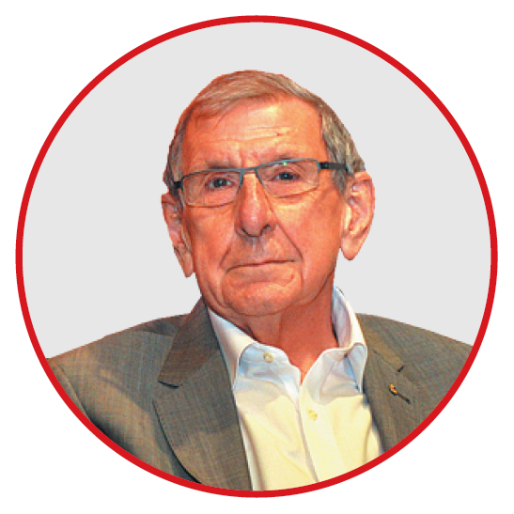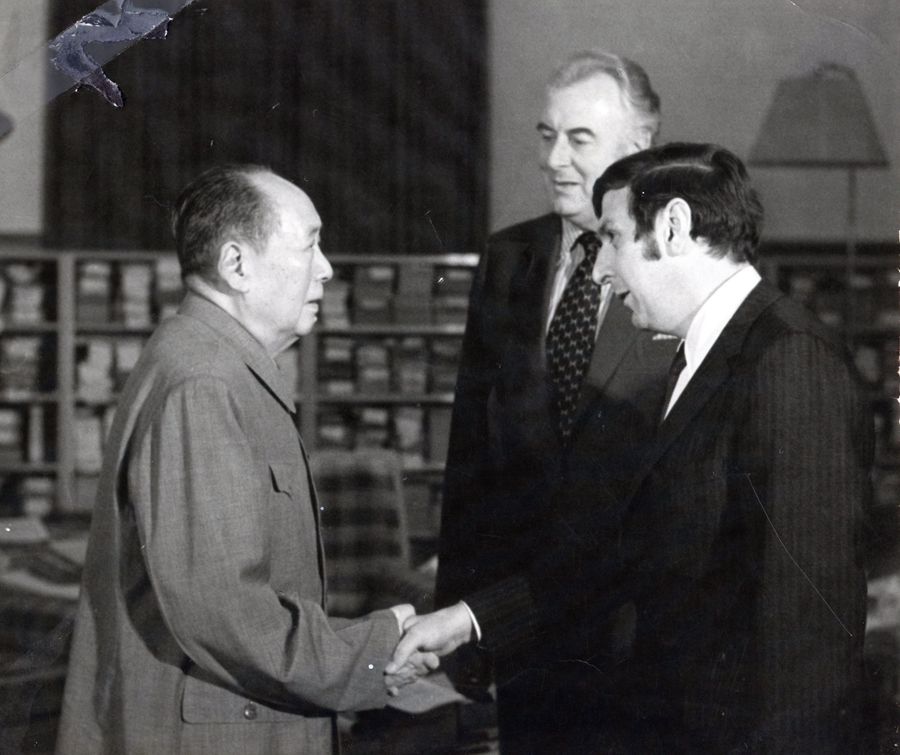
1957-1960: University of Tasmania, Asian History
1966-1968: PhD, Australian National University, Canberra
BOOKS AND AWARDS:
1977: China and the World, ANU Press
1984: Officer of the Order of Australia
2015: Comrade Ambassador: Whitlam's Beijing Envoy, Melbourne University Publishing
BORN:
Hobart, Tasmania, 1938
CAREER:
1961-1966: Department of External Affairs
1971: Adviser to Labor opposition leader, Gough Whitlam
1973-1976: Ambassador to China
1975-1976: Ambassador to the Democratic People's Republic of Korea
1980-2010: Established private consultancy for Australian businesses dealing with government in China
1987-1988: Chaired the Australian government's Committee to Advise on Australia's Immigration Policies, which wrote the landmark report, Immigration: A Commitment to Australia
1990-2004: Professor and head of the University of New South Wales' Asia-Australia Institute
1991: Member of the first Australian Human Rights Delegation to China
1998-2002: Member of the Foreign Affairs Council
Since the late 1960s, he has been involved in public policy development and reform in Australia's relations with Asia and for an Asia-literate Australian society.
He was professorial fellow and head of the Department of Far Eastern History and the Contemporary China Centre at the Australian National University, Canberra, in the late 1970s.
In the 1980s, he chaired the Hawke government's Asian Studies Council, which in 1988 developed a national strategy for the study of Asia in Australia.
Since 2004 he has been chairman of the Griffith Asia Institute and research strategy director of the University of Technology Sydney's China Research Centre.
He is currently chairman of the independent public policy initiative China Matters, a distinguished fellow at the Whitlam Institute at the University of Western Sydney, and an honorary fellow at the China Studies Centre at the University of Sydney.
Opening-up: The view from down under

When Stephen FitzGerald arrived in Beijing to take up his post as Australia's first ambassador to the People's Republic of China in April 1973, he was entering a country on the threshold of monumental change.
It was a transformation that in the space of 40 years would see the economy grow at breakneck speed, deliver unprecedented economic growth, lift some 700 million people out of poverty and see the country become one of the most powerful nations on earth.
The China of 1973, however, was vastly different to the China of today.
At the time it was coming to terms with the full impact of the "cultural revolution" (1966-76).
It was a time when the founding father of the People's Republic of China, Mao Zedong, was in poor health and a bitter power struggle was being played out behind the scenes by the "Gang of Four".
It was also the year that saw the rehabilitation of Deng Xiaoping, who had been purged and stripped of his Party posts between 1967-69.
Deng was widely tipped to succeed Zhou Enlai as premier but he was purged again following Zhou's death in January 1976.
It was not until Mao's death in September that year and the consequent fall from power of the "Gang of Four" that Deng was rehabilitated.
For the next two decades, Deng set China on a course of change that would eventually propel the country to the forefront of the world stage as an economic and political power.
Looking back over the past 40 years, the mild-mannered former Australian diplomat said the transformation of China has been "nothing short of staggering", and Deng's reforms have had an impact on all levels of Chinese society.
"If I were to pick an area where the impact of those reforms has been the greatest I would say in the fields of science and technology," FitzGerald said.
"It took time for China to shake off the excesses of the 'cultural revolution', when universities and schools were closed, and teachers purged.
"It wasn't a question of not having the students ... China didn't have the teachers for these subjects.
"So began a program of sending the best and brightest out to study science and technology. These young men and women didn't go to ordinary universities either, they went to the best."


